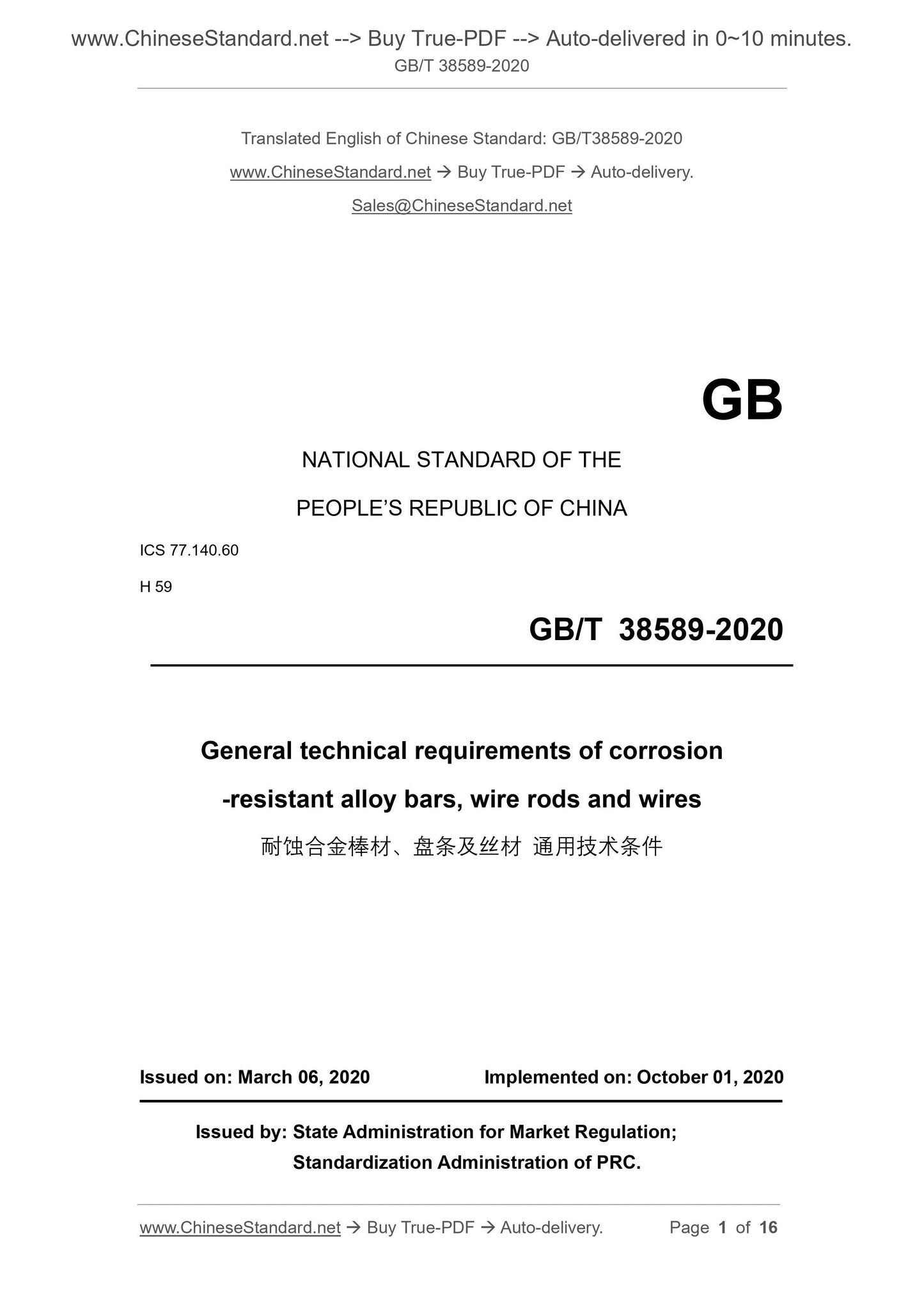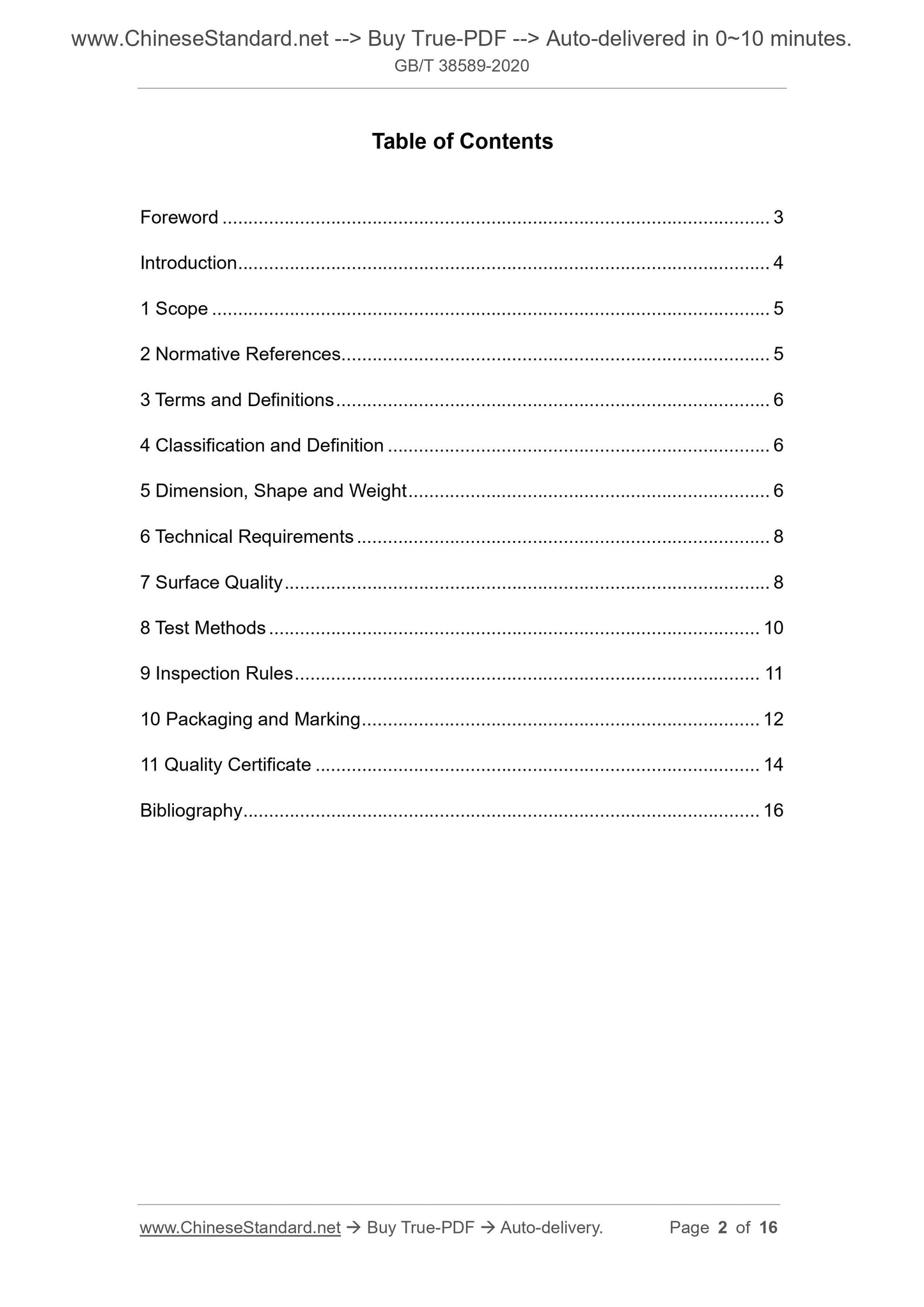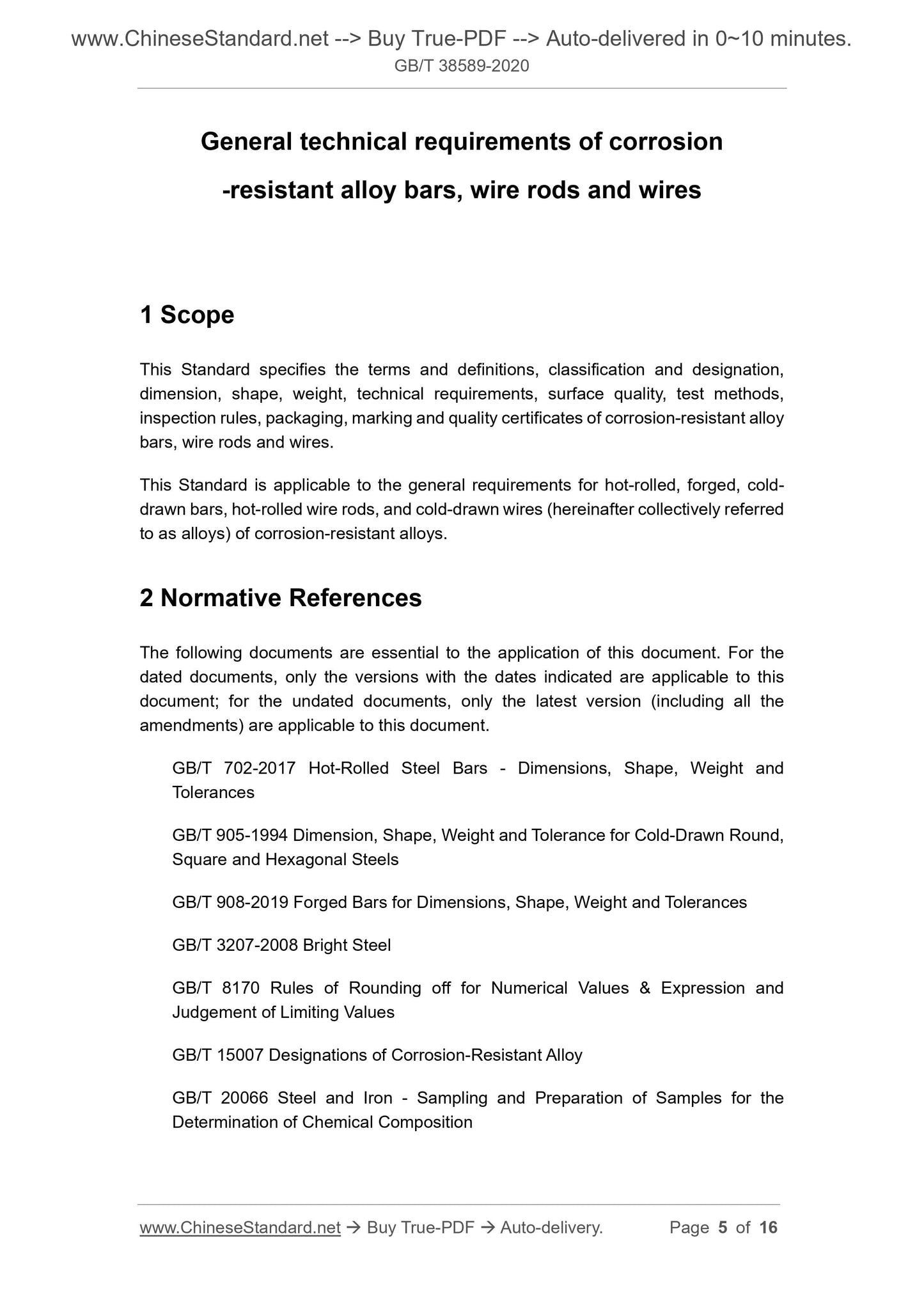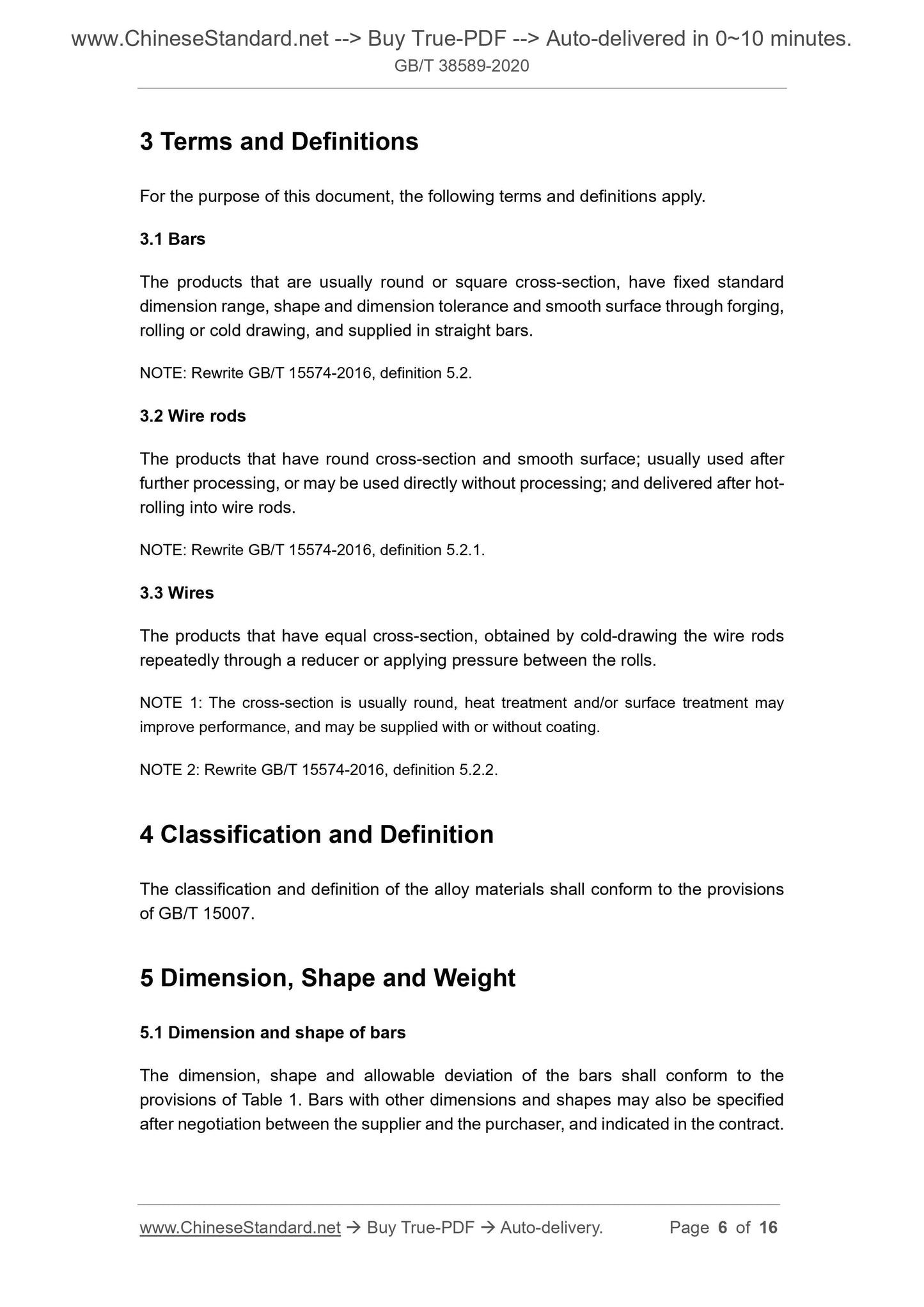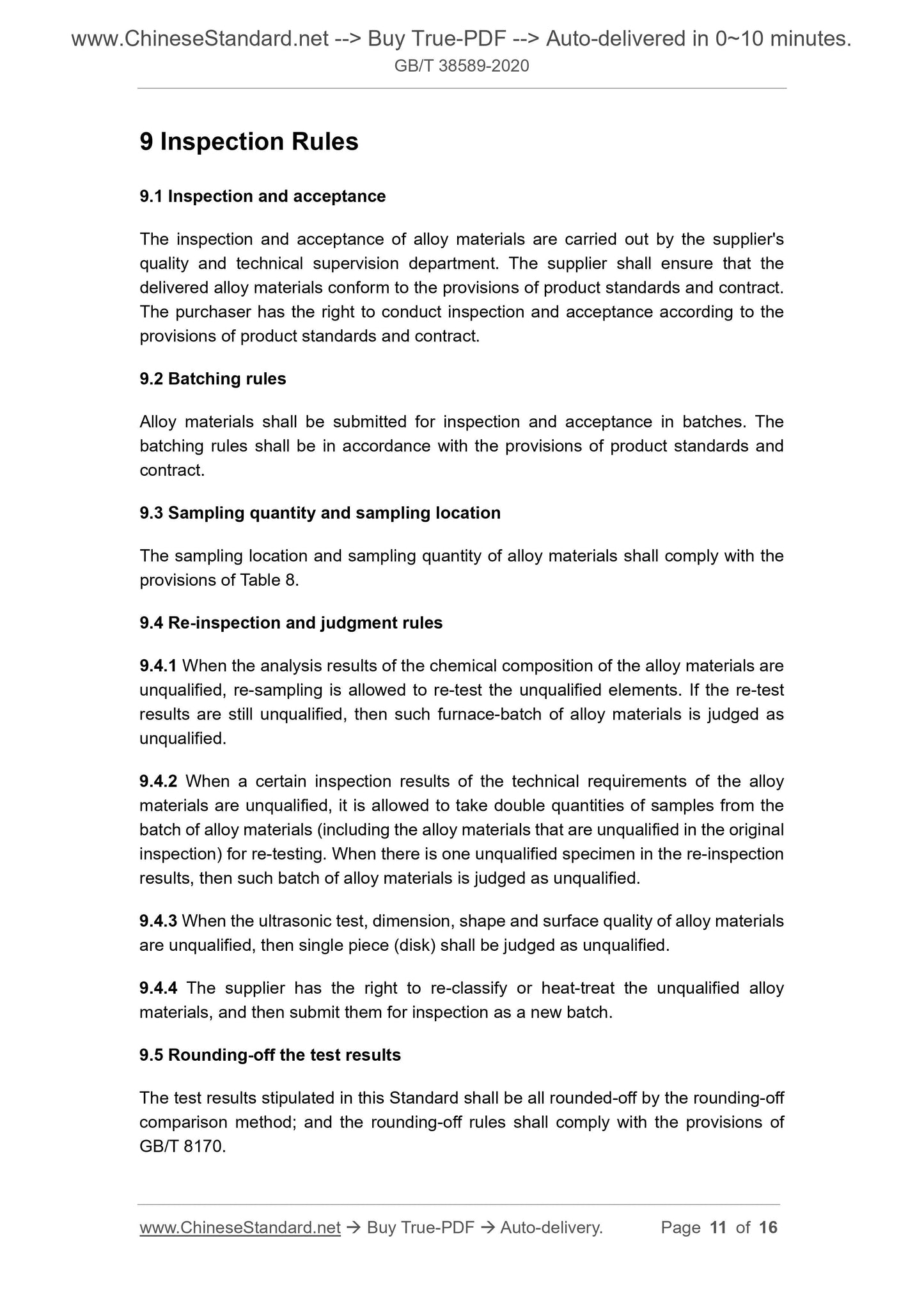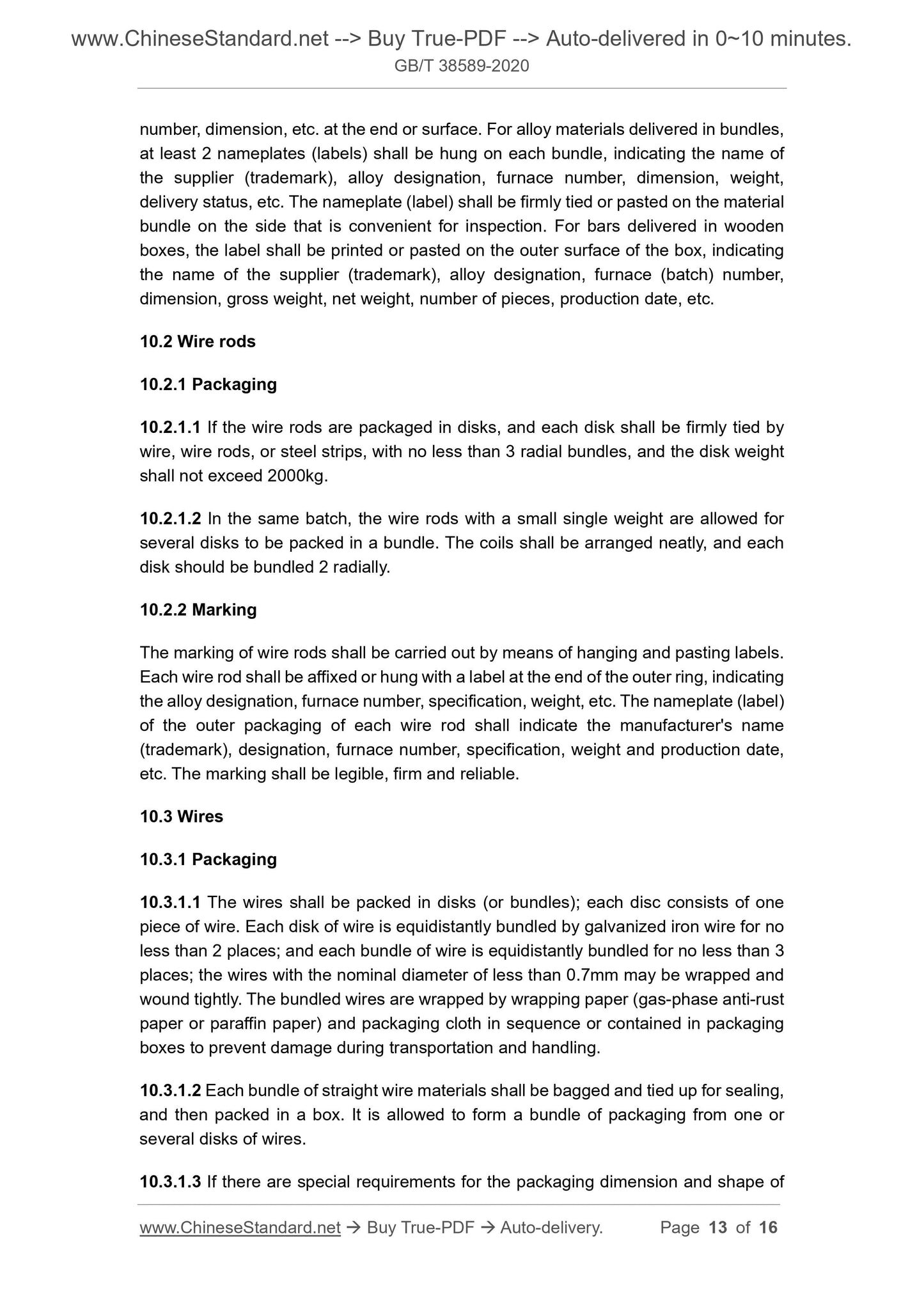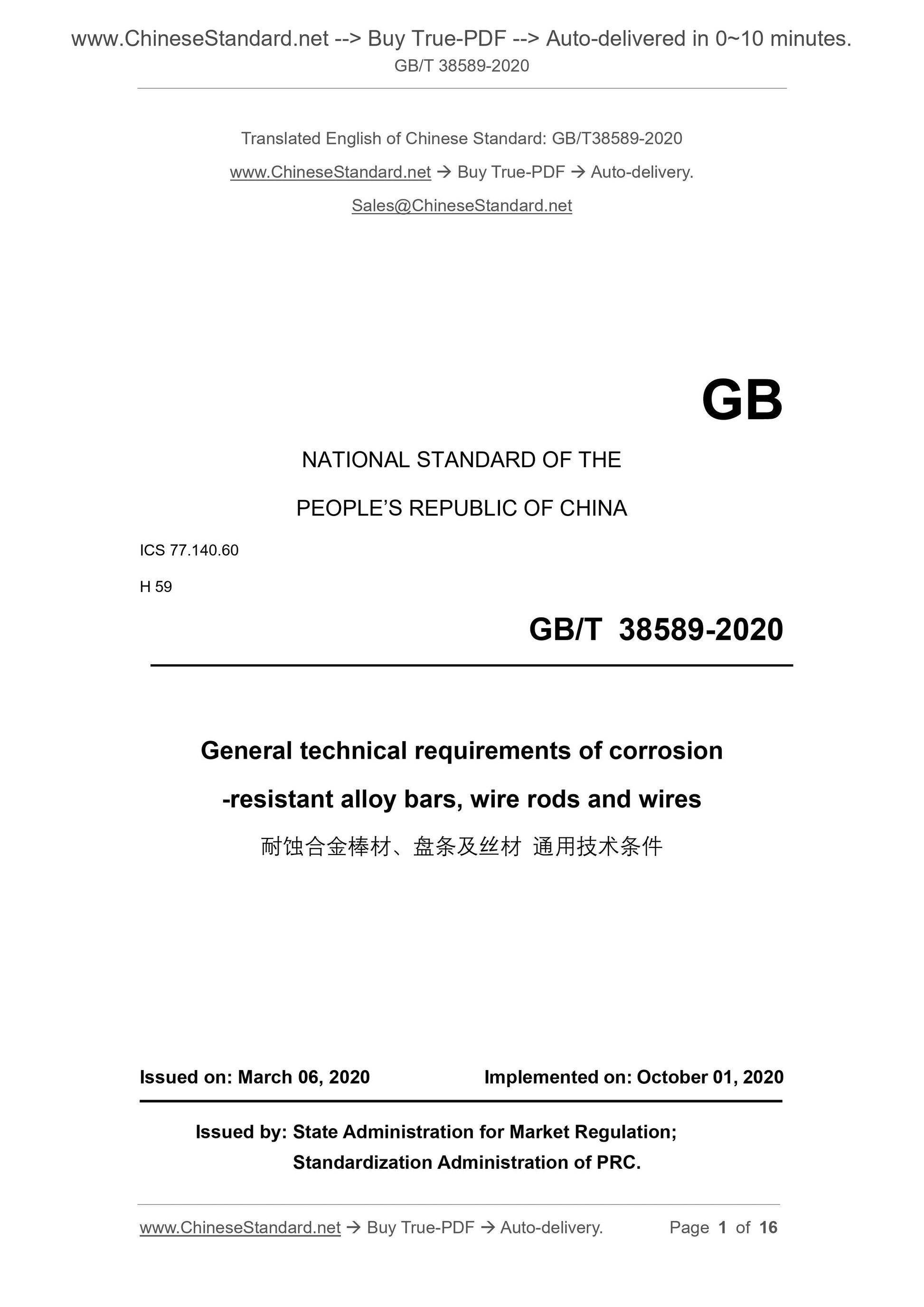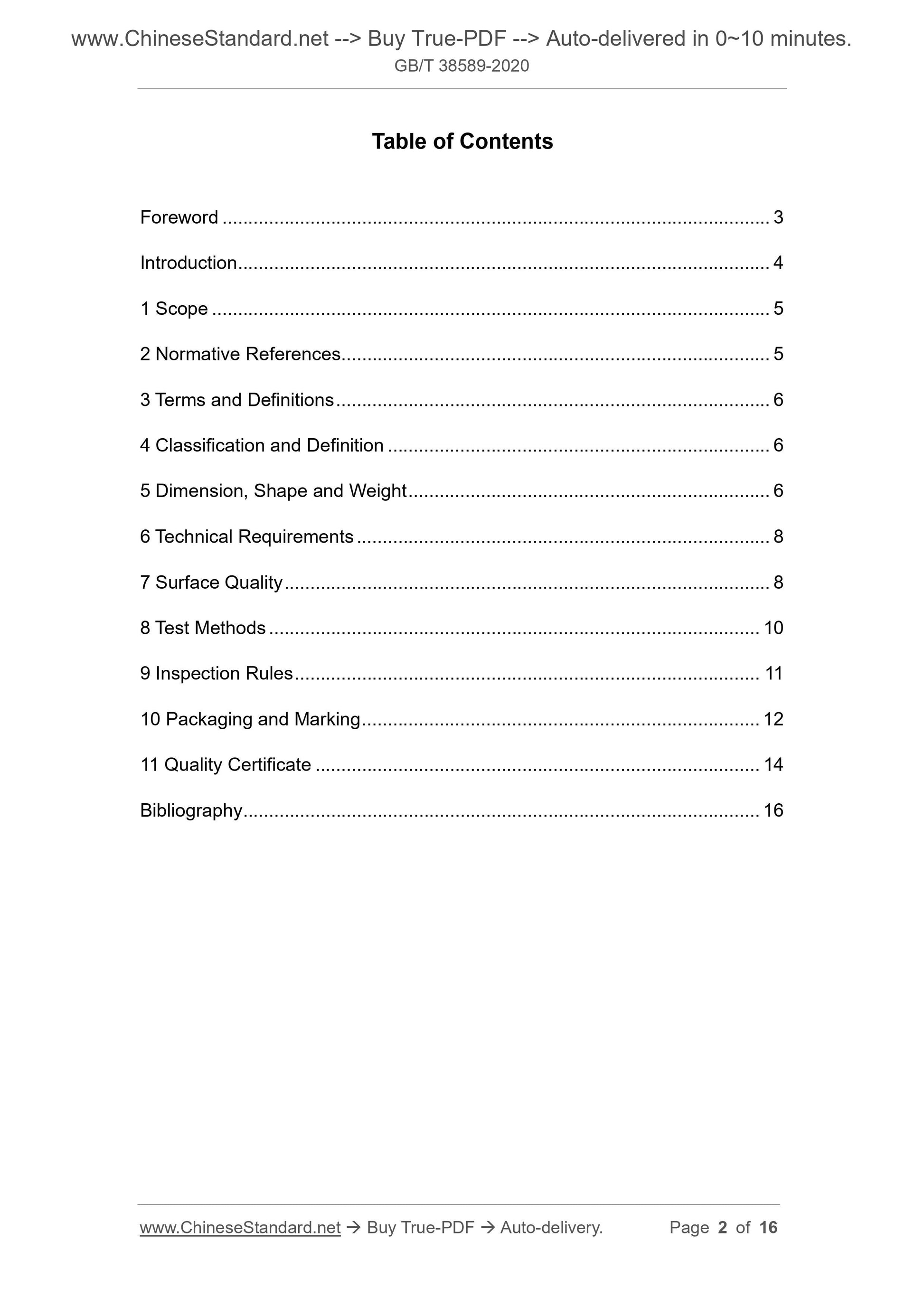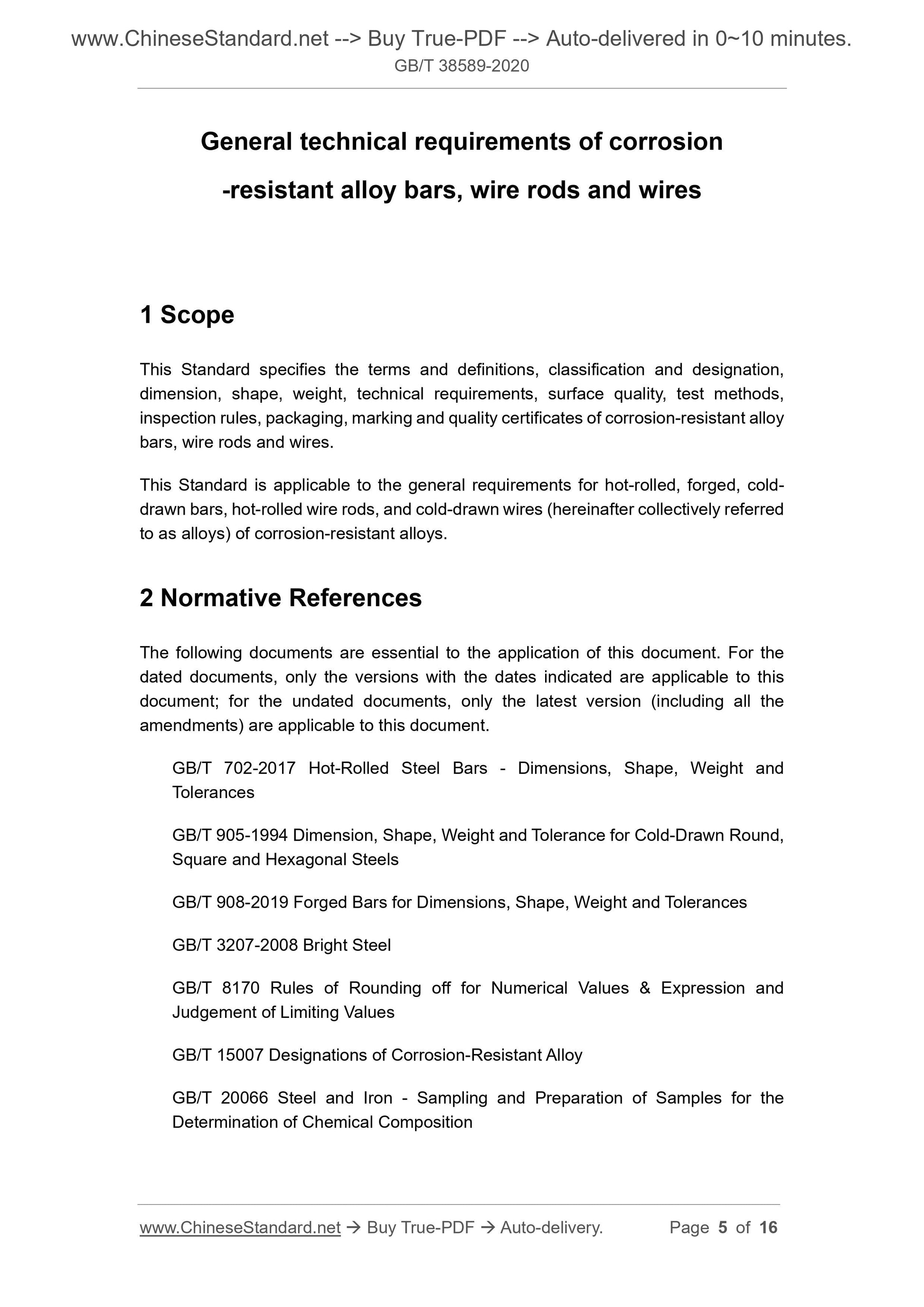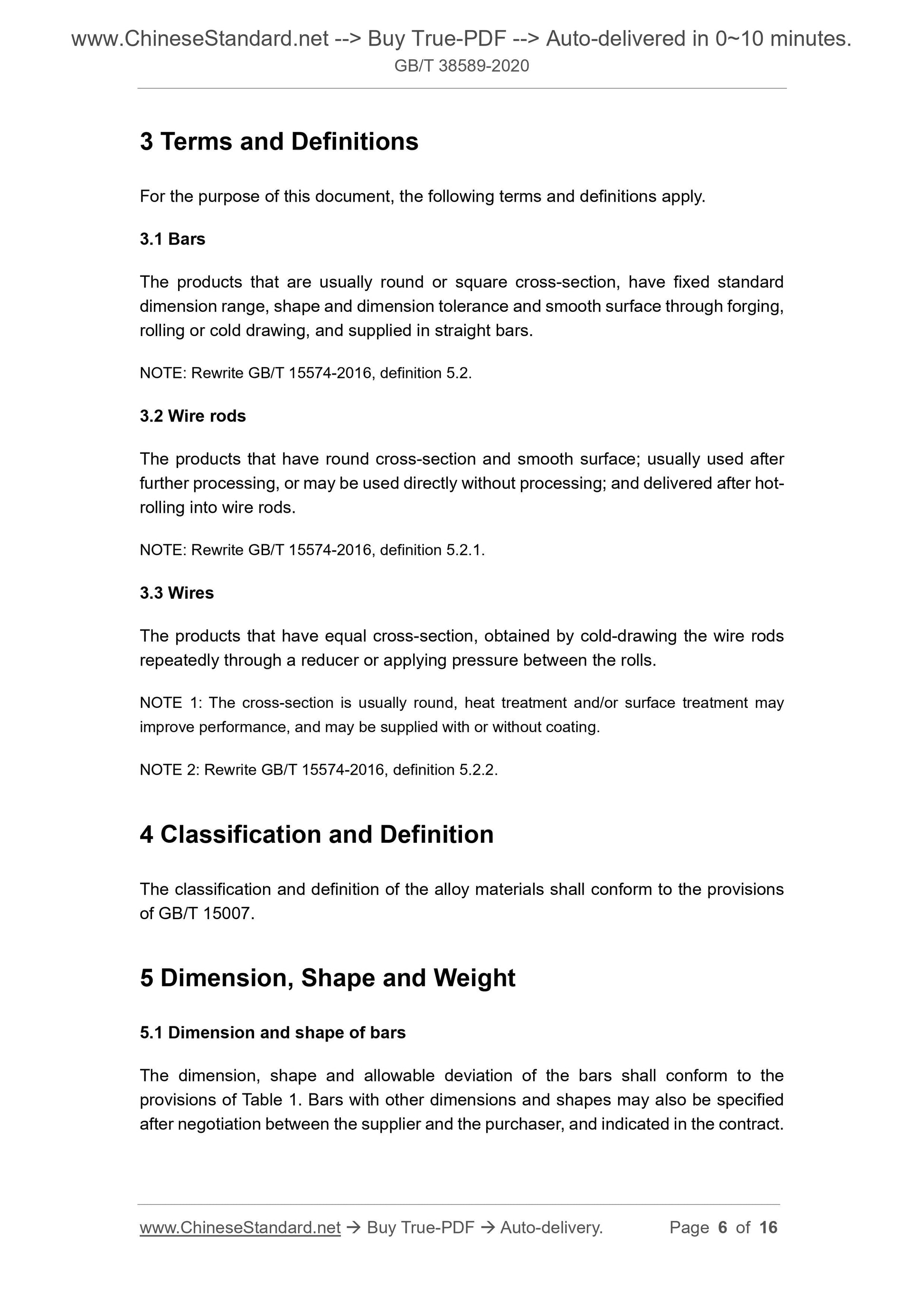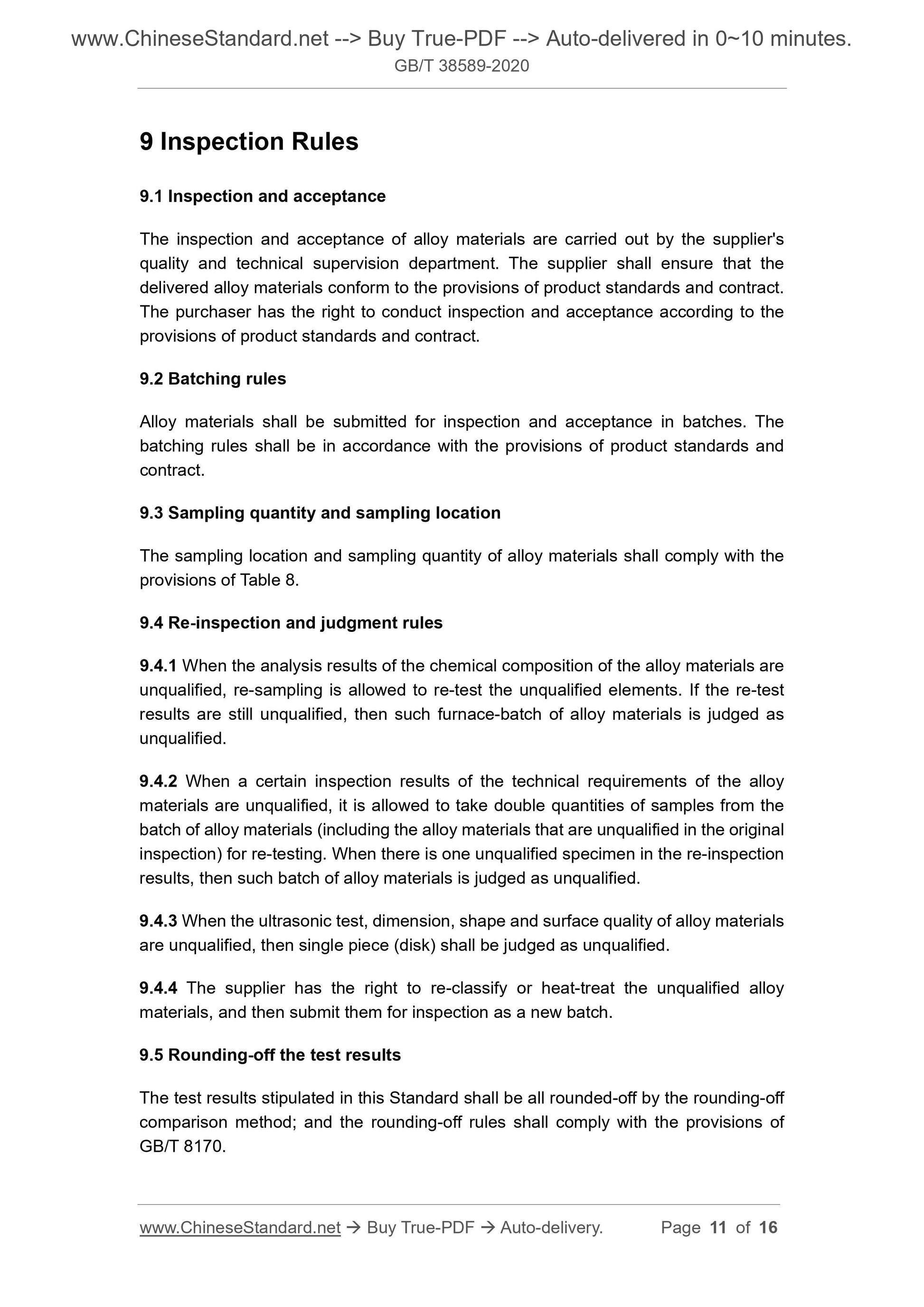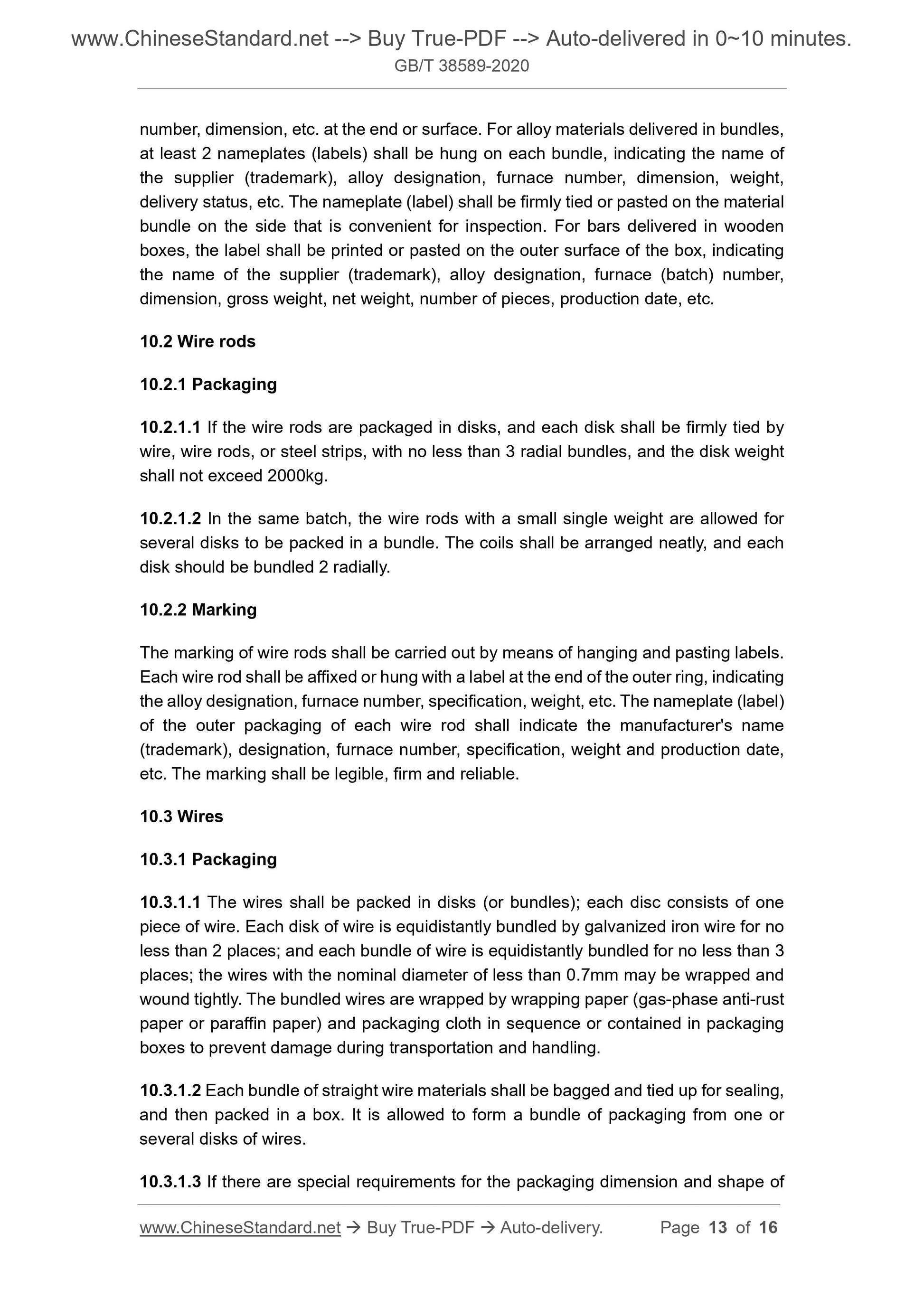1
/
of
6
www.ChineseStandard.us -- Field Test Asia Pte. Ltd.
GB/T 38589-2020 English PDF (GB/T38589-2020)
GB/T 38589-2020 English PDF (GB/T38589-2020)
Regular price
$185.00
Regular price
Sale price
$185.00
Unit price
/
per
Shipping calculated at checkout.
Couldn't load pickup availability
GB/T 38589-2020: General technical requirements of corrosion-resistant alloy bars, wire rods and wires
Delivery: 9 seconds. Download (and Email) true-PDF + Invoice.Get Quotation: Click GB/T 38589-2020 (Self-service in 1-minute)
Newer / historical versions: GB/T 38589-2020
Preview True-PDF
Scope
This Standard specifies the terms and definitions, classification and designation,dimension, shape, weight, technical requirements, surface quality, test methods,
inspection rules, packaging, marking and quality certificates of corrosion-resistant alloy
bars, wire rods and wires.
This Standard is applicable to the general requirements for hot-rolled, forged, cold-
drawn bars, hot-rolled wire rods, and cold-drawn wires (hereinafter collectively referred
to as alloys) of corrosion-resistant alloys.
Basic Data
| Standard ID | GB/T 38589-2020 (GB/T38589-2020) |
| Description (Translated English) | General technical requirements of corrosion-resistant alloy bars, wire rods and wires |
| Sector / Industry | National Standard (Recommended) |
| Classification of Chinese Standard | H59 |
| Classification of International Standard | 77.140.60 |
| Word Count Estimation | 14,142 |
| Date of Issue | 2020-03-06 |
| Date of Implementation | 2020-10-01 |
| Quoted Standard | GB/T 702-2017; GB/T 905-1994; GB/T 908-2019; GB/T 3207-2008; GB/T 8170; GB/T 15007; GB/T 20066 |
| Issuing agency(ies) | State Administration for Market Regulation, China National Standardization Administration |
| Summary | This standard specifies the terms and definitions, classification and grades, dimensions, shape, weight, technical requirements, surface quality, test methods, inspection rules and packaging, marking and quality certificates of corrosion-resistant alloy bars, wire rods and wires. This standard applies to the general requirements of hot-rolled, forged, cold-drawn bars, hot-rolled wire rods, and cold-drawn wires of corrosion-resistant alloys (hereinafter collectively referred to as alloys). |
Share
